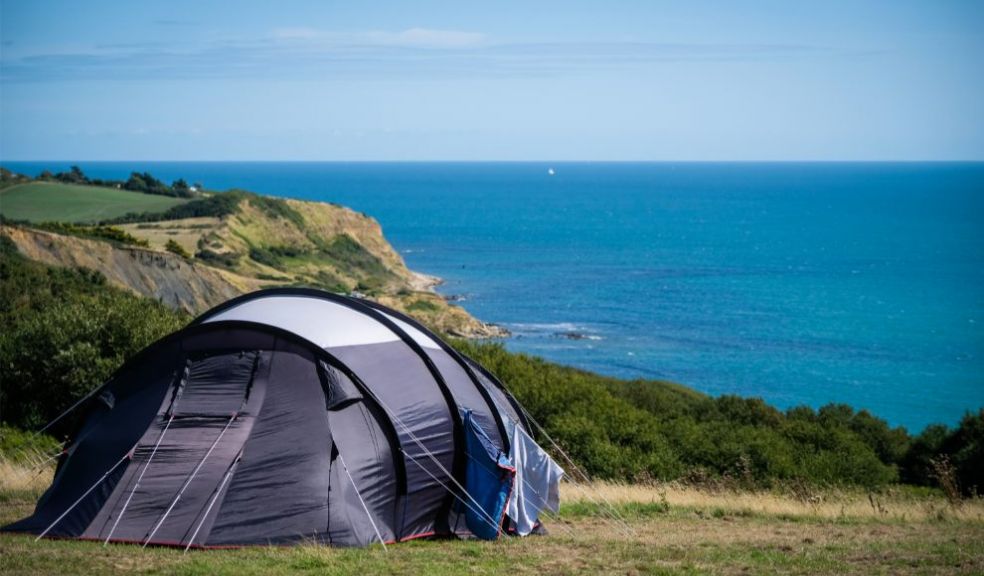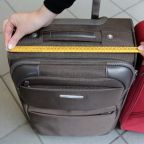
Extreme Heat: 10 Staycation Tips To Keep Cool When You’re Camping this summer holidays
Amid uncertainty around travel abroad, many Brits are staying in the UK for their holidays this year with campsite booking increasing by 500% in some regions. While the UK is gripped by an extreme heatwave, and another expected in August, keeping cool under the canvas is something that’s becoming essential for many first-time campers.
As part of their Sunny Staycations campaign, the broadband team at Uswitch have pulled together 10 essential tips for keeping cool when you’re camping.
1. Pitch in the shade
When you arrive at your campsite, consider the weather forecast for the duration of your stay. If it’s going to be hot, try and pitch your tent in the shade.
Ideally, you’d like your tent to be in the shade all day, but this isn’t always possible, so prioritise your tent being in the shade from midday to evening. This should help prevent the air inside it from being heated throughout the hottest part of the day by the sun.
2. Take a tent designed to keep you cool
Camping technology has come a long way in the past few years. There are plenty of tents on the market that now feature black-out bedrooms that can reduce the internal cabin temperature by around 5°C.
As an added bonus, they also block the light out, just like black-out blinds, meaning you won’t be woken by the sun coming up earlier than you’d like. However, these tents can be more expensive than their more basic counterparts, so may only be worth the investment if you’re going to camp regularly.
3. Face the breeze
When pitching your tent, it’s always tempting to face the main entrance towards the nicest view. However, that instagramable out-the-door photo opportunity isn’t going to keep you cool. Instead, when pitching your tent, check which direction the wind is blowing, and face the entrance to your tent towards that direction.
If it’s too still to get a good read on which way the wind’s blowing, many weather apps have localised information, and the Met Office Wind Map is always reliable.
4. Reflect the heat away
If you can’t find any natural shade to pitch your tent in, try to create some of your own. Wind-breaks - essentially long pieces of material strung between poles that you hammer into the ground - are primarily designed to protect your tent from unwanted wind, but in hot weather, they can provide some much-needed shade.
Another make-shift solution is to pack a couple of emergency foil blankets - the kind you see marathon runners wrapped in after a race. String one up about half a metre from your tent and in the direction of the sun. This will help create shade, and reflect much of the excess heat away from your tent. They’re easily available online and in outdoor shops, and usually cost very little.
5. Stay hydrated
It may seem obvious - but can often be overlooked when camping - is access to clean drinking water. It’s important to ensure you drink plenty of water during a heatwave, and even more so when your tent is acting as a canvas greenhouse.
Before you travel, check whether the site you’re staying at has drinking water facilities. If so, ensure you arrive with plenty of water and have refillable containers to store more water.
If the site where you’re camping doesn’t have access to drinking water, make sure you take plenty of your own, and then some extra. You’ll need more than you think.
6. Get a fan
For some, going camping is all about getting away from modern technology, which is completely understandable. However, when the mercury rises, a fan is a piece of low-tech kit that can be the difference between a good time and a bad one.
If you want to remain as technology-free as possible, you can opt for an old fashioned hand fan to waft some breeze your way. However, there are plenty of small, rechargeable, USB fans on the market that are no bigger than a modern smartphone. Most are good for many hours of use off a full charge.
7. Freeze water before you travel
A couple of nights before you’re due to travel, fill a couple of plastic bottles roughly 80% full with drinking water, seal them firmly, and put them in the freezer to go solid.
Take these camping with you and they can act as make-shift freezer-blocks to keep food chilled while travelling. If you’ve got a small USB fan (see above), place one of the frozen bottles between you and the fan to get a blast of icy cool air. And finally, when the ice eventually melts, you’ve got another source of clean, fresh drinking water.
8. Open the doors, close the curtains
If you’re camping in a heatwave, you want to encourage as much airflow around your tent as possible. When you’re at your tent, open the door, and if it has them, windows. Most tents will have small ties to let you keep these open.
Some bigger tents, especially those with separate bedroom compartments, have mesh blinds, primarily designed to protect your privacy while camping. With the doors and windows closing these much thinner curtains can provide some much-needed shade inside the tent.
9. Pick the right sleeping bag
Sleep can be one of the things most adversely affected by a heatwave when camping. Even if it’s cooler outside at night, heat from the day can linger beneath the canvas at night, which will only be added to by your body heat. And with the doors and windows closed, there’s little place for it to go.
As such, you should try to take a sleeping bag that’s appropriate for warm weather. Obviously, first-time campers may not want to invest in multiple sleeping bags on the off chance it may be warm while they’re away. If so, a simple bed sheet can provide a similar level of comfort and security, but also help you remain cool when you’re trying to sleep.
10.Take your tent down
Yes, it may seem a little extreme, but in extremely hot weather, taking your tent down after you’ve woken up has its benefits. A tent will act like a greenhouse, soaking up the suns rays, and super-heating the air trapped inside it.
By taking your tent down when you wake up in the morning, you’re taking away that cell for the hot air to sit in. Granted, this is only a step necessary when it’s extremely hot, and is probably best suited to people with quick-pitch tents. On the plus side, you’ll be an expert at pitching tents by the end of the week.
https://www.uswitch.com/broadband/the-best-weeks-in-the-year-to-book-your-holiday/
















